Heather Knight: New England captain's journey from Plymstock to India
- Published
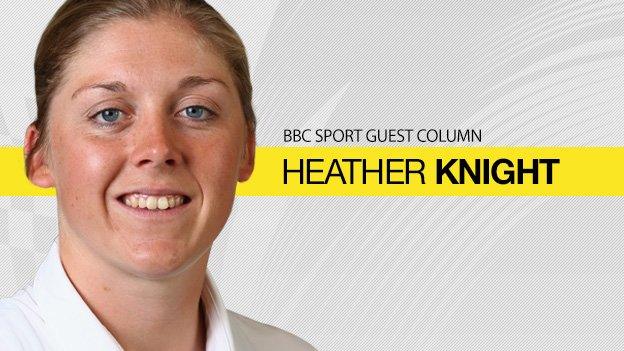
To mark International Women's Day earlier this year, new England women's captain Heather Knight wrote about her own journey from club cricket in Devon to the international arena. This is an updated version of that column, originally published in March 2016.
The #PledgeforParity, external campaign is the heartbeat of International Women's Day this year, focusing on how both men and women can help gender equality be achieved more rapidly (this doesn't mean you have to purchase a bra to burn, boys!).
With this in mind, it's prompted me look back at my cricketing journey, from being a shy tomboy in Plymouth to a full-time professional international athlete, and the influential figures, both male and female, that have helped me along the way.
The cricket landscape has changed and developed dramatically over the past 10 years, but growing up in deepest, darkest Devon, it's safe to say that as a cricket-mad eight-year-old girl, I was in the minority.
Much of my cricket education was at Plymstock Cricket Club,, external where I started playing for the colts in the under-9s (spot the "well-fed" girl on the back row below!) all the way through to the men's first XI in the Devon League, playing alongside my older brother Steve.
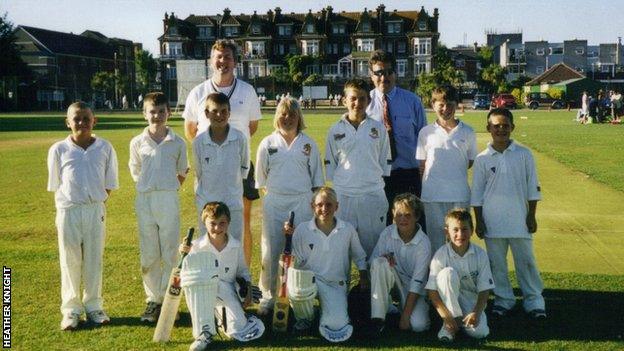
Knight's cricketing life began with Plymstock Cricket Club's under-9 side
I'll admit, I couldn't name one female international cricketer at that stage and it was from the men's game that I sought my role models - the likes of Marcus Trescothick and Michael Atherton were my inspiration.
But alongside my brother and dad, who initially got me into the game, it was my mum who made being a woman who loved sport a completely normal, natural thing. She used to do laps of our local park whilst my brother and I messed around, and I used to love watching her take down absolutely anyone on a squash court.
Being the only girl in the men's team at Plymstock often attracted the occasional comment from the opposition: "Does she do our ironing after we finish playing?" being a personal favourite!
But the guys I played with couldn't have been any better at treating me with complete parity to everyone else on the team - having the view that if I was good enough I should play.
They used to find it hilarious when the other teams weren't quite so accommodating - the Plymstock boys called me 'sweetheart' in jest for weeks after one of the opposition called me that when shaking hands after one match.
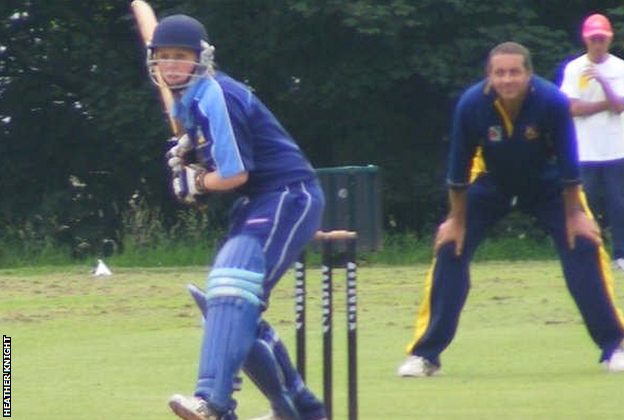
Batting for Plymstock men's 1st XI
I guess I was lucky in the fact that a number of the key figures in my life didn't see gender as an issue when helping me to develop in my cricketing career. I've also been very lucky to be involved at a time when the landscape for women's cricket has shifted remarkably.
We are at a stage now where in England at least, it isn't about luck any more, it's about tangible action. Over the last 18 months or so, the England and Wales Cricket Board has been at the forefront of developing women's cricket as a viable career option for women and girls.
Huge shifts have been made and are being made as cricket moves to make its own #PledgeforParity.
The England women's team is now fully professional; sponsors have purposefully invested, with stand-alone sponsorship deals directly benefiting the women's team and bespoke equipment ranges launched.
Flagship Twenty20 competitions such as the Women's Big Bash League in Australia and the ECB's Women's Cricket Super League are starting up.
Every ball of the Women's Ashes in 2015 was covered live on BBC Radio and Sky Sports and now, unlike when I was a chubby eight-year-old playing for Plymstock, young girls can take their role models directly from the women's game.
It's been great to see where the women's game has got to, and to be part of breaking that new ground. Last summer, our marketing campaign for the Women's Ashes was all about "smashing boundaries" - obviously, we literally wanted to smash lots of boundaries on the pitch, but the whole campaign was more about the wider implications and reach of the women's game.
Throughout the summer we hit record attendances for an international women's cricket series in England, and while the Ashes were heartbreakingly lost in front of a 5,500-strong sell-out crowd at Hove, there were so many wins off the field, which will hopefully have an enduring legacy.

Grounds such as Hove, pictured here, and Chelmsford drew big crowds for the Women's Ashes
It's great that the ECB is leading the way in the development of the women's game, but there is still a long way to go in so many respects.
So many brilliant things have happened around the development of women's cricket during the past 10 years, I have absolutely no doubt that the game will once again be unrecognisable in 10 years' time as all involved #PledgeforParity.
Read more from Heather Knight's winter tour columns |
|---|
- Published3 June 2016
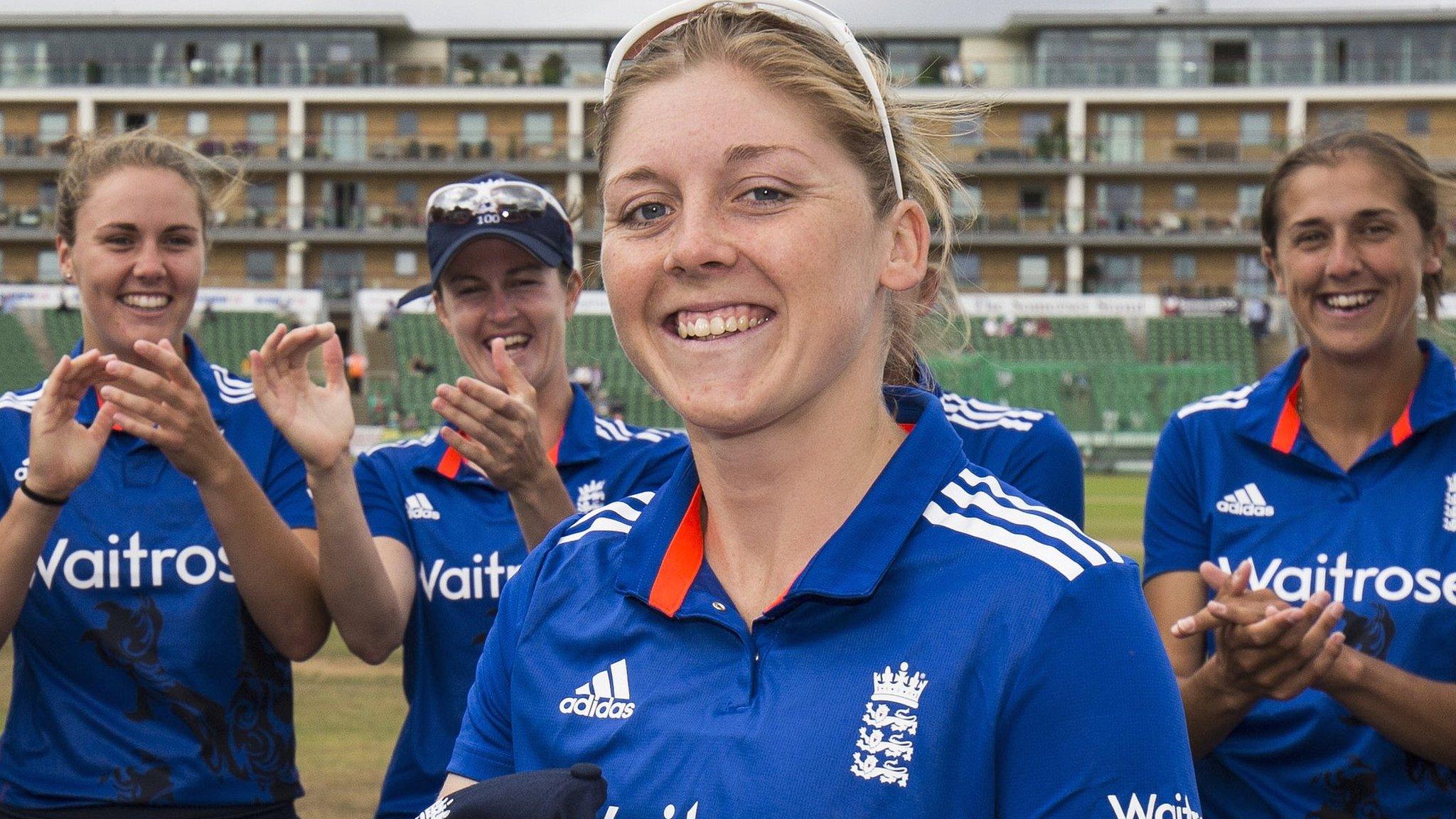
- Published3 June 2016
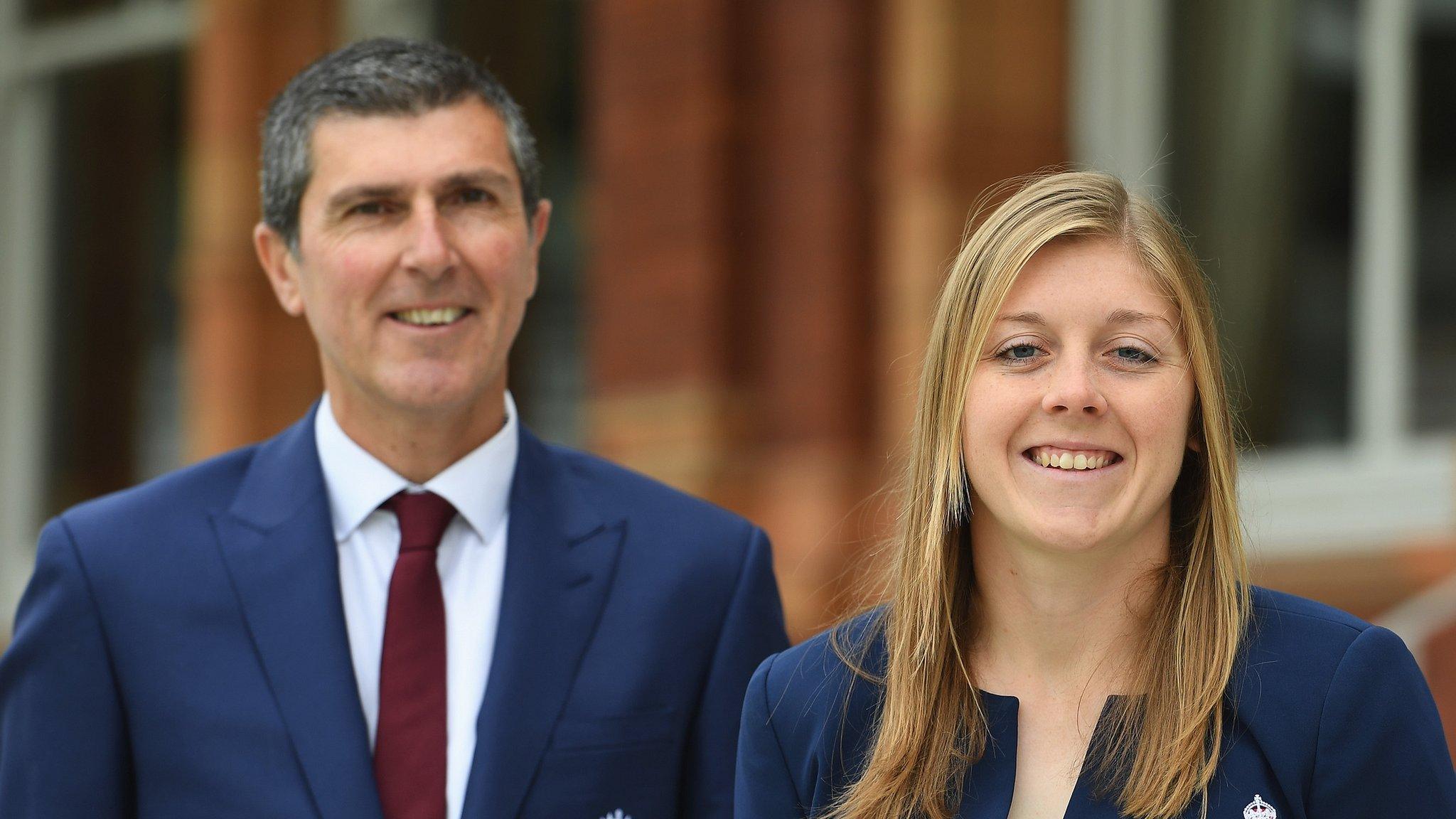
- Published1 June 2016
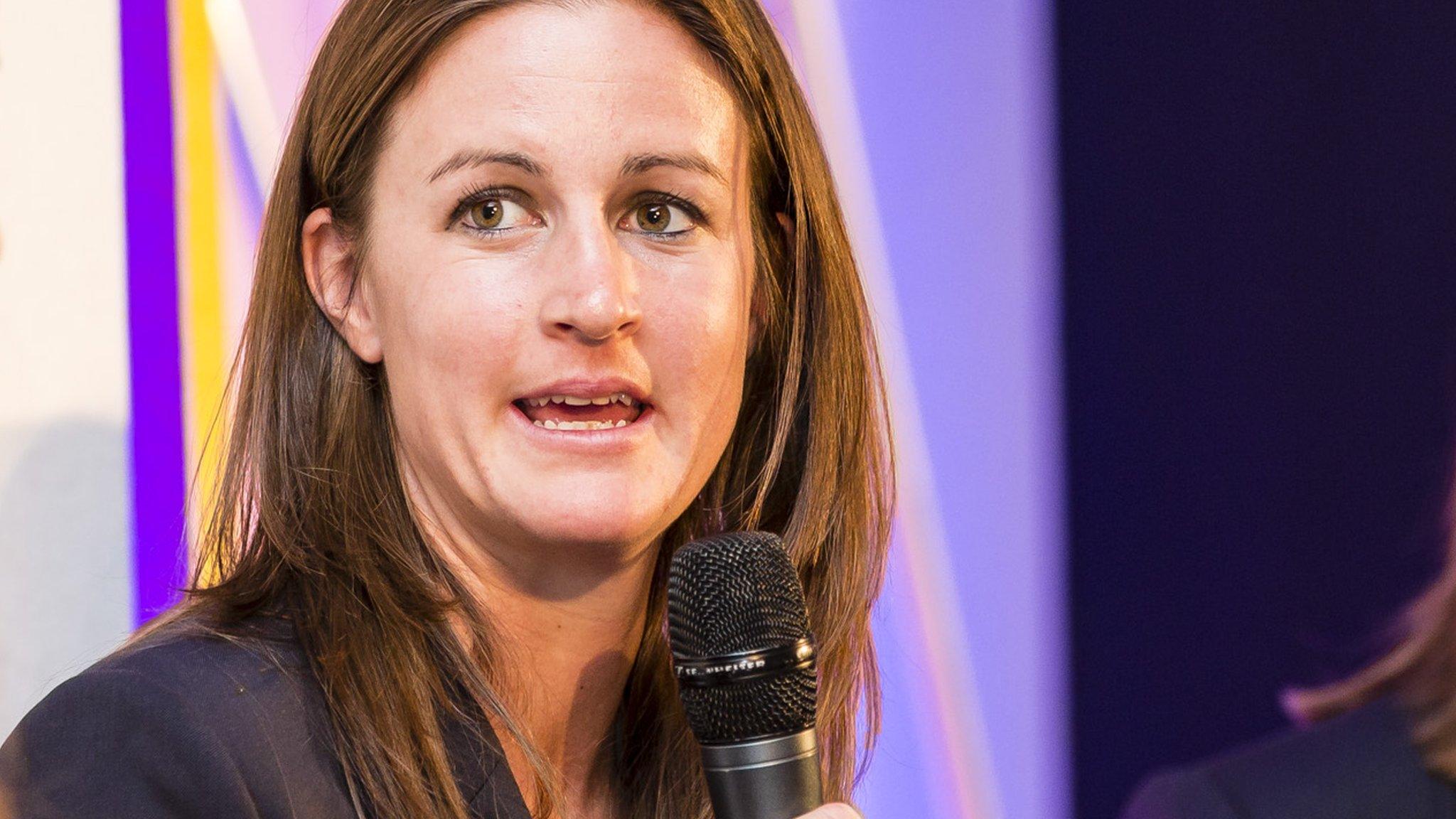
- Published16 May 2016
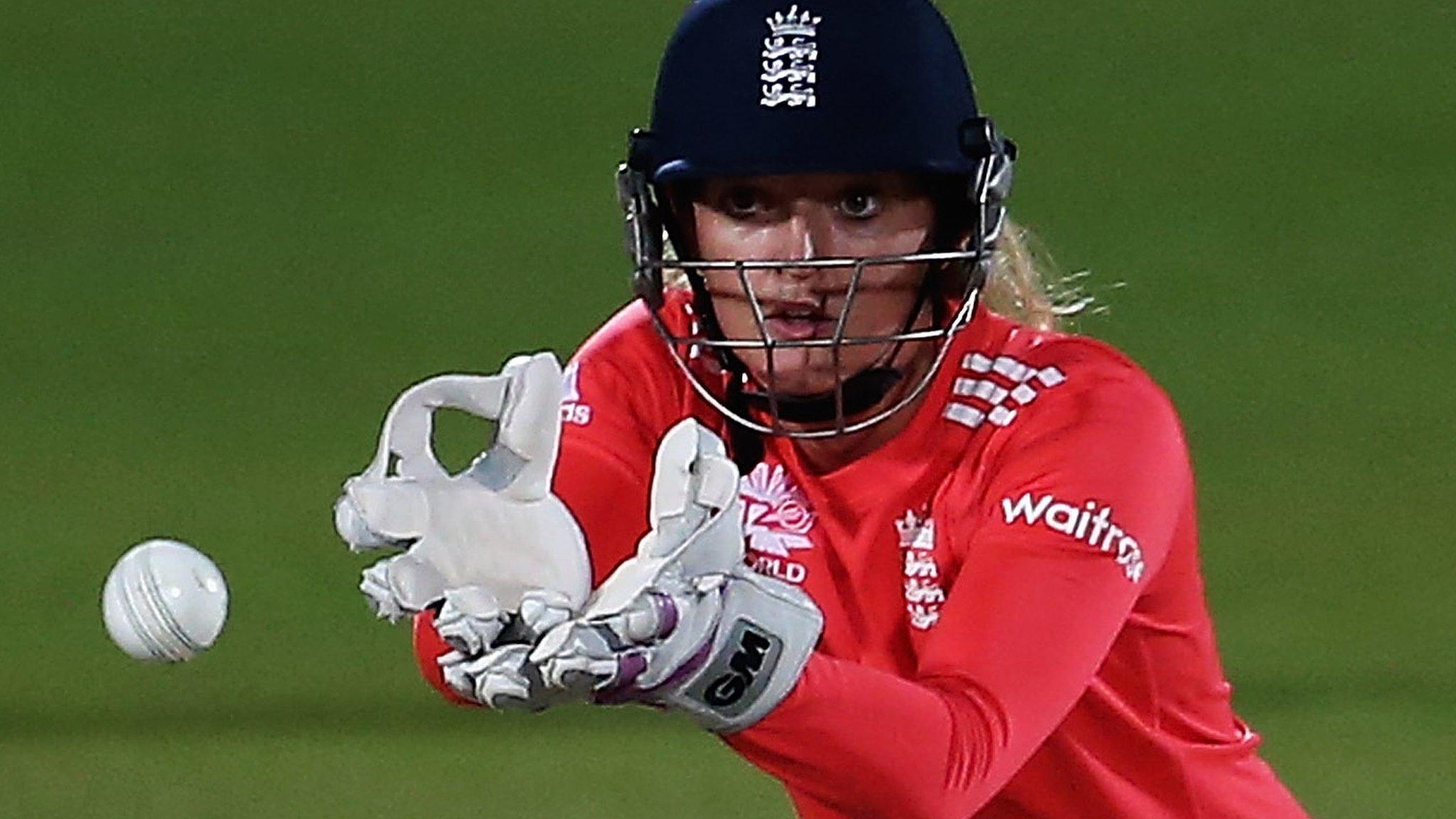
- Published11 May 2016
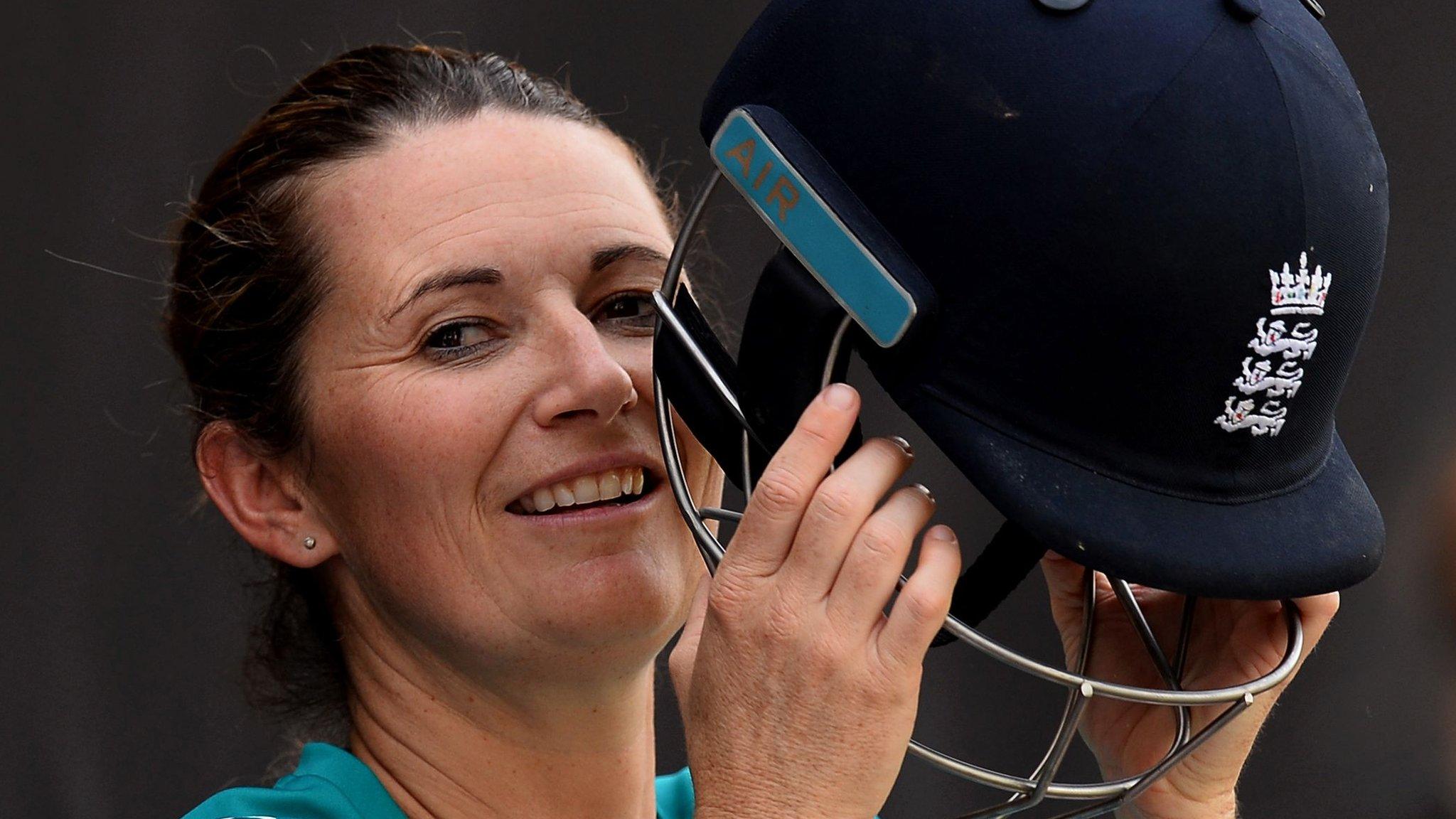
- Published10 March 2019
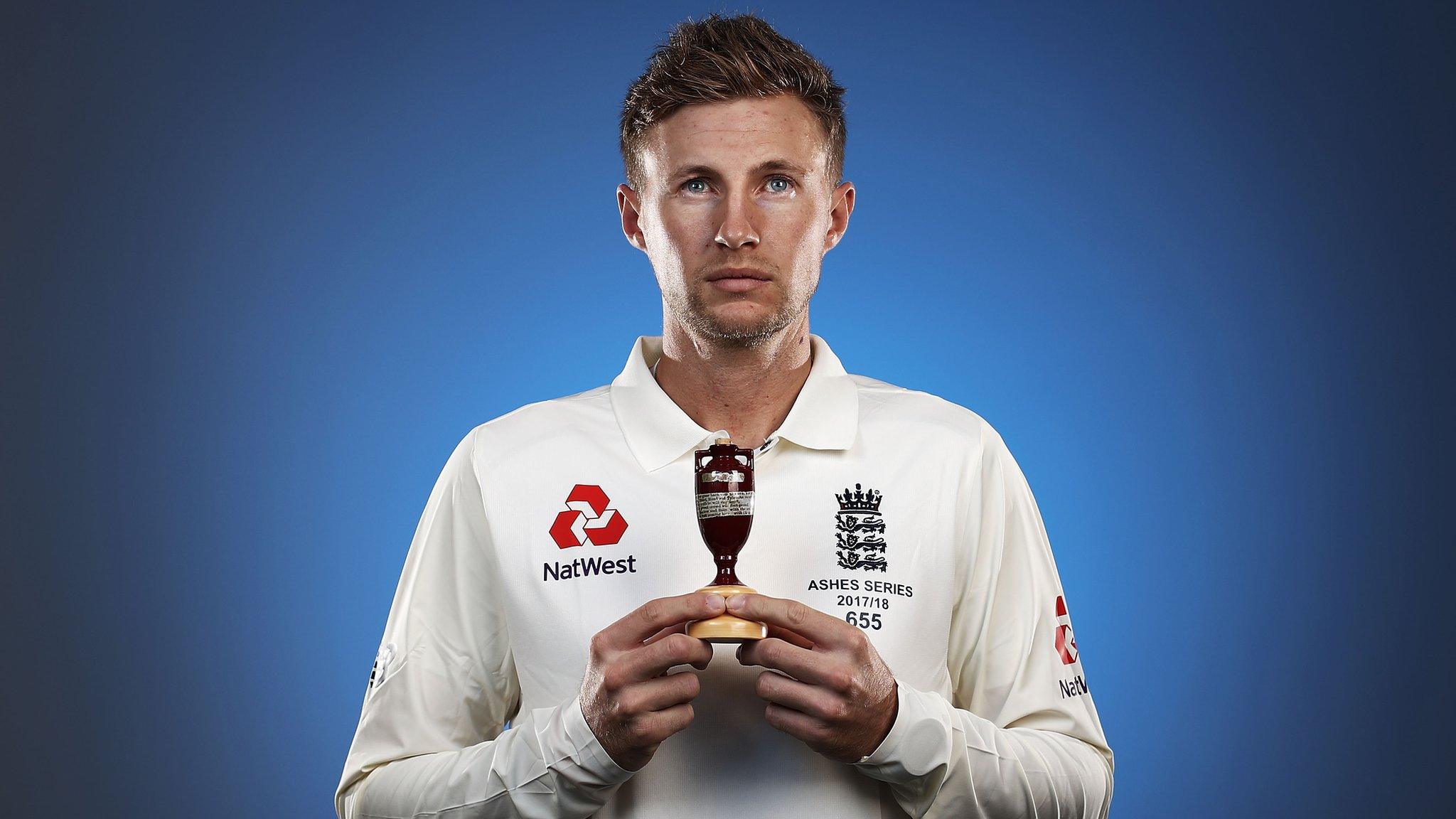
- Published18 October 2019
